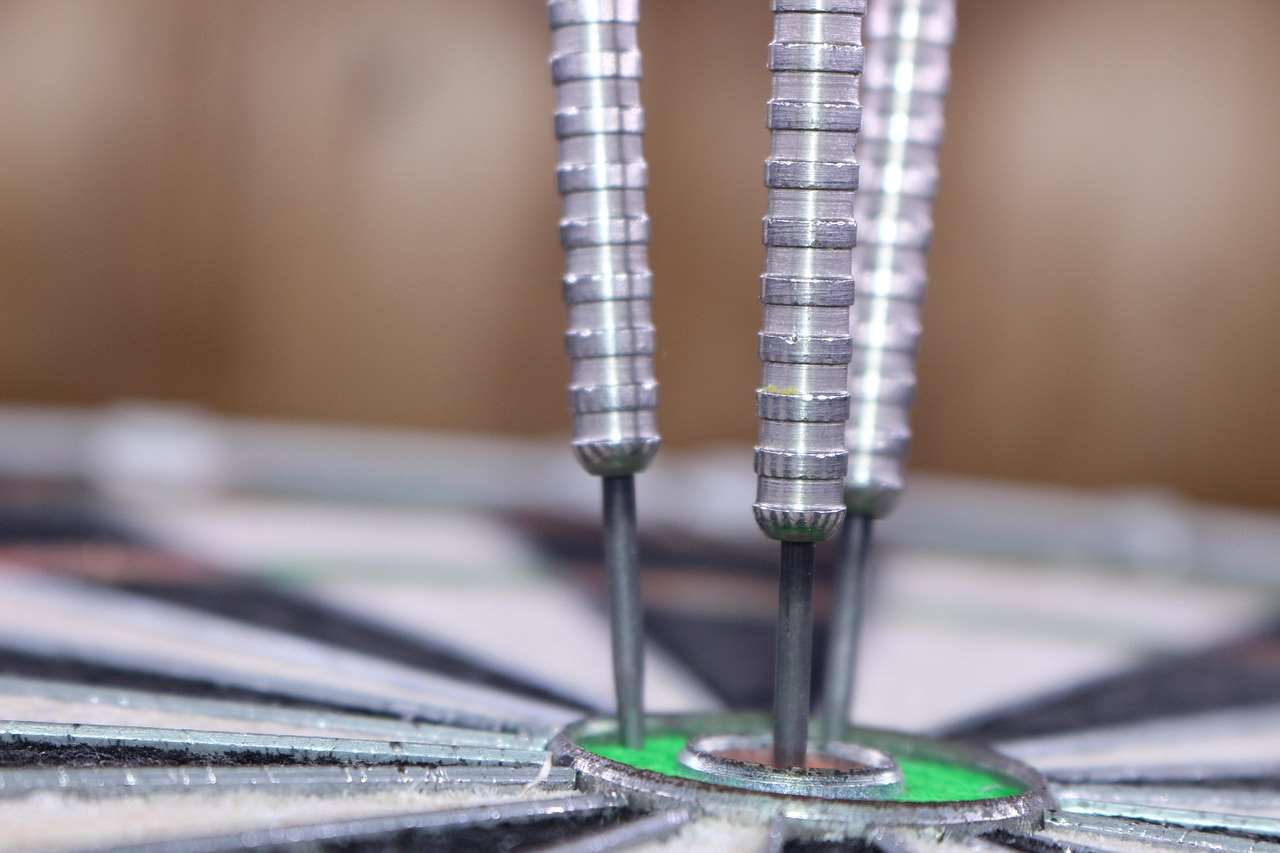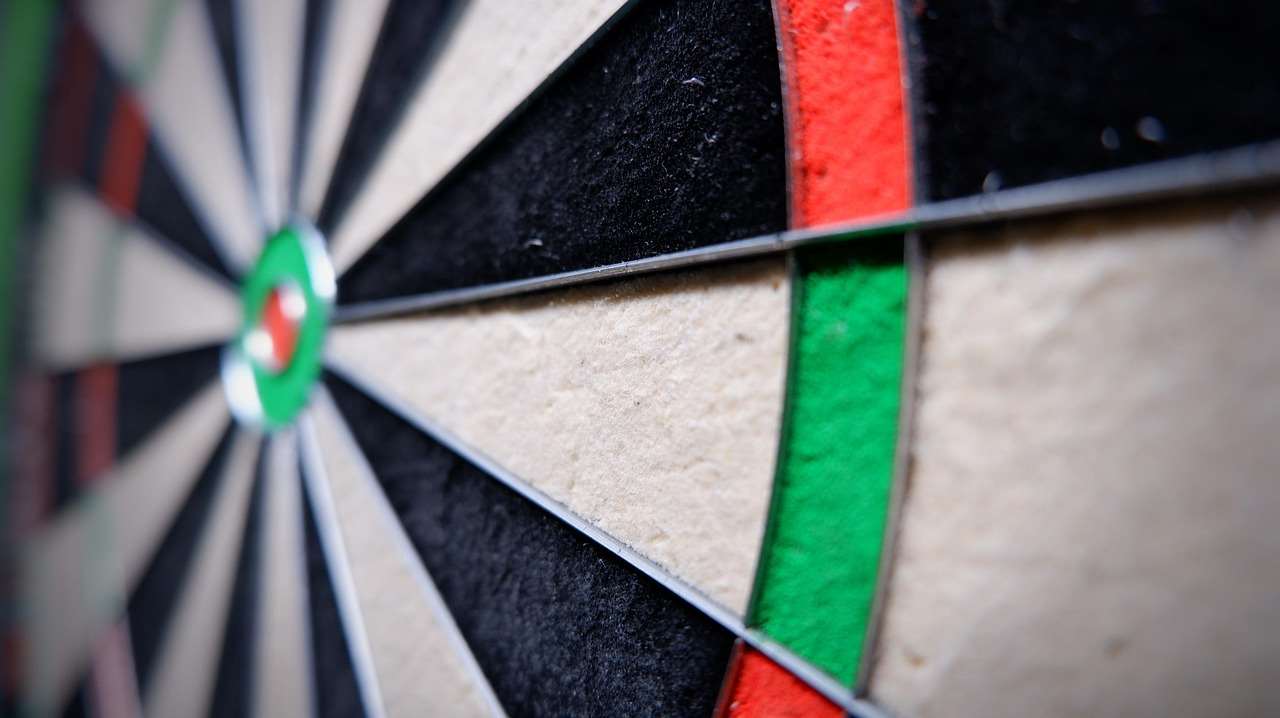Choosing the right darts scoring board is crucial for an enjoyable and competitive game. This article will guide you through selecting the perfect board, understanding different types, and optimizing your game. We’ll also cover setup, maintenance, and common mistakes to avoid.
⚠️ Still Using Pen & Paper (or a Chalkboard)?! ⚠️
Step into the future! The Dart Counter App handles all the scoring, suggests checkouts, and tracks your stats automatically. It's easier than you think!
Try the Smart Dart Counter App FREE!Ready for an upgrade? Click above!
The world of darts offers a thrilling blend of skill, strategy, and social interaction. Whether you’re a seasoned professional or a casual player, having the right equipment significantly impacts your experience. A reliable darts scoring board is at the heart of this experience, ensuring smooth gameplay and accurate scorekeeping. This article will delve into the various types of darts scoring boards available, helping you choose the one best suited to your needs and budget. We’ll explore features to consider, maintenance tips, and even offer some advice on improving your game. From electronic marvels to classic manual boards, we’ll cover it all.
Choosing the Right Darts Scoring Board: Electronic vs. Manual
The first major decision you’ll face when buying a darts scoring board is whether to opt for an electronic or manual model. Each has its pros and cons, and the best choice depends on your individual preferences and playing style. Electronic darts scoring boards offer convenience and accuracy, automatically calculating scores and keeping track of game statistics. They often feature multiple game modes, customizable settings, and even sound effects to enhance the atmosphere. However, they typically come with a higher price tag than their manual counterparts. Manual darts scoring boards, on the other hand, offer a more traditional and arguably more engaging experience. They require manual scorekeeping, providing a level of interaction and engagement often missing in their electronic rivals. They are generally more affordable and less prone to technical issues. Consider your budget, technological preference, and the level of convenience you desire when making your decision.

For beginners, a basic manual board can be a great starting point. It allows you to focus on your throwing technique without the distraction of technology. More advanced players might appreciate the features of an electronic board, such as game statistics and multiple game modes. Think about the size of your dartboard area too; an electronic board may require more space than its manual counterpart.
Features to Consider When Buying a Darts Scoring Board
Display and Readability
The clarity and size of the display are paramount, especially in dimly lit environments. An electronic darts scoring board should have a bright, easy-to-read display that’s visible from a distance. Look for boards with large digits and clear score indicators. For manual boards, a crisp, clean design will make scorekeeping less error-prone. The material of the board should also be durable enough to handle regular use.
Durability and Build Quality
A quality darts scoring board should be built to withstand regular use. Look for sturdy construction materials and a robust design that can resist impacts and general wear and tear. Consider the weight and stability of the board, especially if you anticipate a lot of enthusiastic play. A heavy, stable board will offer a more solid feel and will be less likely to move or tip over during play. Reading reviews from other users can give you valuable insights into the long-term durability of different models.
Additional Features
Many modern electronic darts scoring boards offer a range of additional features, such as multiple game modes (cricket, 301, 501, etc.), sound effects, voice prompts, and even the ability to save scores and game statistics. Consider which features are important to you and choose a board that offers the functionality you need. Some boards also offer connectivity features, allowing you to track your scores using a smartphone or tablet app. Using an Automatic dart scoring app might be a great addition for efficient scorekeeping.

Setting Up Your Darts Scoring Board
Proper setup is vital for accurate scoring and a comfortable gaming experience. Make sure your darts scoring board is placed at the correct height and distance from the dartboard. This will depend on the rules of the game you’re playing and the height of the players. A level surface is crucial for stability and accurate scorekeeping, especially for manual scorekeeping. Make sure it’s also easily accessible to all players, without hindering their throw. If you’re using an electronic board, make sure it’s plugged in and properly powered.
Maintaining Your Darts Scoring Board
Regular cleaning and maintenance will extend the lifespan of your darts scoring board. For electronic boards, avoid getting liquids on the board and use a soft, dry cloth to clean the display. For manual boards, periodically wipe down the surface with a damp cloth to remove dust and dirt. Avoid using abrasive cleaners or harsh chemicals, which could damage the board’s finish. Consider purchasing a protective cover to shield it from dust and other debris when not in use. For dart counter help, you might want to consult the manual for your specific model, or seek support online.
Common Darts Throwing Mistakes to Avoid
Improving your dart throwing technique can significantly enhance your game. Common mistakes include inconsistent grip, poor posture, and inaccurate aiming. Practicing proper technique and focusing on a consistent release can dramatically increase your accuracy. Darts double ring grip can be a great help to enhance your aim.

Furthermore, maintaining a relaxed and focused mental state is crucial for achieving consistent results. Avoid distractions and focus on your throw. Consider practicing different throwing techniques to find what works best for you. Regular practice is key to improving your accuracy and overall game performance. If you’re struggling with consistency, a darts tune up might be in order to refresh your skills and re-evaluate your technique.
Different Types of Darts Games and Their Scoring
The type of game you play will influence the choice of darts scoring board. Popular games like 301, 501, and Cricket have different scoring systems and may require specific features on the board. Some electronic boards support many different game variants, making them incredibly versatile. For a game of how to double darts, your scorekeeping will heavily rely on the accuracy of your board.

Choosing the Right Darts Scoring Board for Your Needs
Ultimately, the best darts scoring board for you will depend on several factors, including your budget, playing style, and the features you prioritize. If you’re a serious player who values accuracy and advanced features, an electronic board might be the best option. If you’re a casual player who prefers a traditional approach, a manual board might suffice. Consider the size of your playing area, the number of players, and the types of games you typically play. Before making your decision, read reviews from other users, and if possible, try out different boards to get a feel for their functionality.
Conclusion
Investing in a quality darts scoring board is key to enhancing your dart-playing experience. Whether you choose an electronic or manual board, ensure it meets your specific needs and preferences, including factors like durability, readability, and additional features. Remember to set up your board correctly, maintain it regularly, and focus on improving your throwing technique. By following these tips, you can improve your game and enjoy many hours of competitive, entertaining darts. Happy throwing!

Ready to find the perfect darts scoring board? Start browsing our selection today!
“`
Hi, I’m Dieter, and I created Dartcounter (Dartcounterapp.com). My motivation wasn’t being a darts expert – quite the opposite! When I first started playing, I loved the game but found keeping accurate scores and tracking stats difficult and distracting.
I figured I couldn’t be the only one struggling with this. So, I decided to build a solution: an easy-to-use application that everyone, no matter their experience level, could use to manage scoring effortlessly.
My goal for Dartcounter was simple: let the app handle the numbers – the scoring, the averages, the stats, even checkout suggestions – so players could focus purely on their throw and enjoying the game. It began as a way to solve my own beginner’s problem, and I’m thrilled it has grown into a helpful tool for the wider darts community.